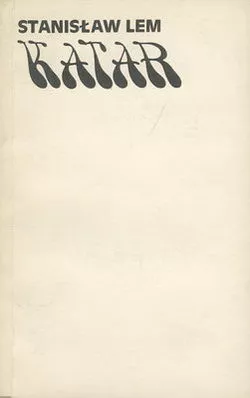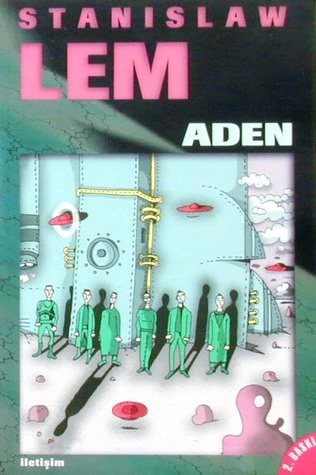-
Жанры
- Авантюрный роман
- Автодело
- Автомобили и ПДД
- Альтернативная история
- Альтернативная медицина
- Альтернативные науки и научные теории
- Анекдоты
- Антисоветская литература
- Античная литература
- Аппаратное обеспечение
- Архитектура
- Астрология
- Астрономия и Космос
- Афоризмы
- Базы данных
- Банковское дело
- Басни
- Биографии и Мемуары
- Биология
- Биофизика
- Биохимия
- Боевая фантастика
- Боевик
- Боевые искусства
- Ботаника
- Буддизм
- Бухучет и аудит
- Былины
- в стихах
- Верлибры
- Вестерн
- Ветеринария
- Визуальная поэзия
- Внешняя торговля
- Водевиль
- Военная документалистика
- Военная история
- Военная техника и вооружение
- Военное дело: прочее
- Востоковедение
- Газеты и журналы
- География, путевые заметки
- Геология и география
- Героическая фантастика
- Городское фэнтези
- Государство и право
- Готический роман
- Дамский детективный роман
- Деловая литература
- Деловая литература
- Делопроизводство
- Детективная фантастика
- Детективы: прочее
- Детская литература: прочее
- Детская проза
- Детская психология
- Детская фантастика
- Детские остросюжетные
- Детские приключения
- Детские стихи
- Детский фольклор
- Документальная литература
- Домашние животные
- Домоводство
- Драма
- Драматургия: прочее
- Древневосточная литература
- Древнеевропейская литература
- Древнерусская литература
- Живопись, альбомы, иллюстрированные каталоги
- Загадки
- Зарубежная классическая проза
- Зарубежная литература для детей
- Здоровье
- Зоология
- Изобразительное искусство, фотография
- Индуизм
- Иностранные языки
- Интернет
- Ироническая фантастика
- Иронический детектив
- Ироническое фэнтези
- Искусство и Дизайн
- Искусствоведение
- Ислам
- Историческая проза
- Исторические любовные романы
- Исторические приключения
- Исторический детектив
- Историческое фэнтези
- История
- История
- История техники
- Иудаизм
- Католицизм
- Киберпанк
- Кино
- Киносценарии
- Классическая детская литература
- Классическая зарубежная поэзия
- Классическая поэзия
- Классическая проза
- Классическая проза XVII-XVIII веков
- Классическая проза ХIX века
- Классическая проза ХX века
- Классическая русская поэзия
- Классический детектив
- Книга-игра
- Коллекционирование
- Комедия
- Комиксы
- Контркультура
- Короткие любовные романы
- Корпоративная культура
- Космическая фантастика
- Космоопера
- Криминальный детектив
- Критика
- Крутой детектив
- Кулинария
- Культурология
- Лирика
- Литературоведение
- ЛитРПГ
- Личные финансы
- Любовная фантастика
- Любовные детективы
- Магический реализм
- Малый бизнес
- Маньяки
- Маркетинг, PR, реклама
- Математика
- Медицина
- Медицинский триллер
- Металлургия
- Мировая художественная культура
- Мистерия
- Мистика
- Мифы. Легенды. Эпос
- Морские приключения
- Музыка
- Народные песни
- Народные сказки
- Научная литература: прочее
- Научная фантастика
- Научпоп
- Недвижимость
- Недописанное
- Ненаучная фантастика
- Неотсортированное
- Неотсортированное
- Новелла
- О бизнесе популярно
- О войне
- О любви
- Образовательная литература
- Обществознание
- Околокомпьютерная литература
- Органическая химия
- ОС и Сети
- Отраслевые издания
- Палиндромы
- Партитуры
- Педагогика
- Песенная поэзия
- Повесть
- Подростковая литература
- Поиск работы, карьера
- Политика
- Политический детектив
- Полицейский детектив
- Попаданцы
- Порно
- Пословицы, поговорки
- Постапокалипсис
- Поэзия Востока
- Поэзия: прочее
- Поэма, эпическая поэзия
- Православие
- Приключения в современном мире
- Приключения про индейцев
- Приключения: прочее
- Природа и животные
- Программирование
- Программы
- Проза
- Протестантизм
- Психологический триллер
- Психология
- Психотерапия и консультирование
- Публицистика
- Путеводители
- Путешествия и география
- Радиоэлектроника
- Развлечения
- Рассказ
- Религиоведение
- Религиозная литература: прочее
- Религия
- Рефераты
- Роман
- Руководства
- Русская классическая проза
- Русские сказки
- Сад и огород
- Самиздат, сетевая литература
- Самосовершенствование
- Сатира
- Сделай сам
- Секс и семейная психология
- Семейные отношения
- Семейный роман/Семейная сага
- Сентиментальная проза
- Сказка
- Сказка
- Сказочная фантастика
- Славянское фэнтези
- Словари
- Советская классическая проза
- Советский детектив
- Современная зарубежная поэзия
- Современная поэзия
- Современная проза
- Современная русская поэзия
- Современная сказка
- Современные любовные романы
- Социальная фантастика
- Спецслужбы
- Спорт
- Справочная литература
- Справочники
- Средневековая классическая проза
- Старинная литература: прочее
- Стимпанк
- Строительство и сопромат
- Сценарии
- Театр
- Технические науки
- Техно триллер
- Технофэнтези
- Торговля
- Трагедия
- Транспорт и авиация
- Триллер
- Ужасы
- Управление, подбор персонала
- Учебники
- Учебники и пособия ВУЗов
- Учебники и пособия для среднего и специального образования
- Учебные пособия, самоучители
- Фантасмагория, абсурдистская проза
- Фантастика: прочее
- Фанфик
- Феерия
- Физика
- Физическая химия
- Философия
- Фольклор: прочее
- Фэнтези
- Химия
- Хиромантия
- Хобби и ремесла
- Христианство
- Хроноопера
- Ценные бумаги, инвестиции
- Частушки, прибаутки, потешки
- Школьные учебники и пособия, рефераты, шпаргалки
- Шпаргалки
- Шпионский детектив
- Эзотерика
- Экология
- Экономика
- Экономика
- Экспериментальная поэзия
- Экспериментальная, неформатная проза
- Энциклопедии
- Эпистолярная проза
- Эпическая поэзия
- Эпическая фантастика
- Эпопея
- Эротика
- Эротика, Секс
- Эссе, очерк, этюд, набросок
- Юмор: прочее
- Юмористическая проза
- Юмористическая фантастика
- Юмористические стихи
- Юмористическое фэнтези
- Юридический триллер
- Юриспруденция
- Языкознание
- Язычество
- Серии
- Коллекции
- Рецензии
- Авторы
- Читатели
Назад
Зарегистрируйтесь
или Вход
Моя библиотека
Где вы хотите сохранить рабочую книгу?
Успех
Вы успешно зарегистрировались на сайте. Обновите страницу.
Успех
Спасибо за Ваш отзыв. Он появится на сайте после модерации.






















